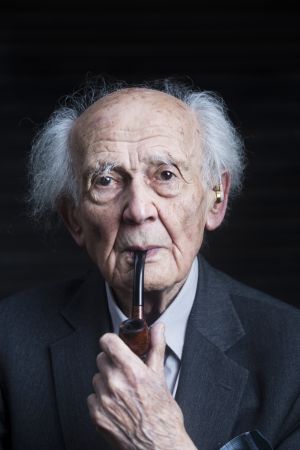Grans noms vinguts de la política, a esquerra i a dreta, posen el seu poder d'influència al servei de les elèctriques
10/01/16 02:00 - BARCELONA - JORDI GARRIGA RIU
El viatge del càrrec amb responsabilitat a l'administració cap a un lloc en una de les grans
empreses del sector elèctric s'ha convertit en un fet normalitzat en un sector que es
resisteix a perdre el seu caràcter concessional.
El polític que arriba d'un ministeri al consell d'administració d'una gran elèctrica duu una
gran agenda d'influències i una capacitat de pressió, sobre l'executiu i el legislatiu, que no
és menyspreable. De vegades, es tracta simplement de pagar serveis prestats. Un joc, el
de portes giratòries, en què s'hi juga des de l'esquerra i des de la dreta.
En el reguitzell de fitxatges enlluernadors d'Endesa, va destacar amb llum pròpia fins al
2014 tot un president, José María Aznar, que s'enduia per fer lobbisme uns 200.000
euros a l'any. En aquesta tasca hi vam veure, abans de ser ministre d'Economia, Luis de
Guindos, i va anar de ben poc que el seu seient al consell l'ocupés Rodrigo Rato. El partit
de la gavina també va tenir com a candidat tot un expresident d'aquesta elèctrica, Manuel
Pizarro, l'home que es va encarregat de neutralitzar l'opa de Gas Natural sobre Fenosa.
Però Endesa també ha tingut al seu consell personatges del cantó oposat en l'espectre
polític, amb tota una ministra d'Economia, Elena Salgado, que tot just deixar l'alt càrrec va
esdevenir vocal del consell d'administració de la filial xilena de l'elèctrica. També
procedent del PSOE, i amb aura ministerial, és Joan Majó, antic titular d'Indústria i membre
del consell assessor de l'elèctrica que presideix David Madí, qui fou gran estrateg d'Artur
Mas a CDC. Miquel Roca Junyent, a qui li corresponia ser hereu de Jordi Pujol, des del seu
bufet d'advocats ha sabut crear vincles valuosos, com ser conseller independent, per un
sou de 308.378 euros. No hauríem d'oblidar tot un emblema de la Transició, de com la va
conduir la dreta, com ara Rodolfo Martín Villa, exministre d'Interior i exvicepresident del
govern, entre altres molts càrrecs amb la UCD, i que actualment, després d'haver estat a
la filial xilena d'Endesa, n'és president d'honor.
Iberdrola també ha anat a pescar a la política gent que es fa rebre i escoltar. Podríem començar amb aquell ministre de l'Interior que
s'entestava a adjudicar l'atemptat terrorista del 14-M a ETA, Ángel Acebes, que ara potser no ha de recórrer a la seva vehemència com a
membre del consell d'administració d'Iberdrola (216.000 euros anuals de retribució).
Juan María Atutxa, exconseller d'Interior del PNB,
dóna fe de la diversitat política en la nòmina de consellers d'Iberdrola, talment com Manuel Marín, socialista expresident del Congrés dels
Diputats i exvicepresident de la Comissió Europea, que presideix la Fundació Iberdrola. Un altre gran puntal és Braulio Medel, antic cervell
econòmic dels socialistes a Andalusia, que és conseller independent de l'elèctrica (297.000 euros de retribució).
A Gas Natural Fenosa, segur que era significada al consell, com a representant de Repsol, la presència d'un exsecretari general
d'Energia i Recursos Minerals amb Aznar, Nemesio Fernández Cuesta. En representació de Criteria Caixaholding, al consell hi ha Heribert
Padrol, exnúmero dos de la llista de CiU al Congrés (126.500 euros de retribució anual). Cristina Garmendia, antiga ministra de Ciència i
Innovació amb els socialistes, és una altra presència destacada del consell. El ministre que no va saber, o no va voler, observar que
venia la crisi, el socialista Pedro Solbes, és conseller d'Enel, accionista de referència a Endesa, amb un sou de 132.000 euros. Red
Eléctrica Española (REE) és també un altre gran cementiri d'elefants remunerats amb 150.000.180.000 euros anuals, amb noms ben
significatius com ara Ángeles Amador, exministra de Sanitat amb el PSOE; Ana Cuevas, antiga cap de gabinet de la secretaria d'estat
d'Energia i Desenvolupament Industrial amb el PP; Paloma Sendín, exdirectora general de Mines amb el PP, o el mateix president de la
cotitzada, José Folgado, que amb els populars va ocupar el càrrec de secretari d'estat d'Economia, Energia i Pressupostos. Abengoa, ara
tan necessitada de liquiditat per esquivar la fallida, també ha recorregut a exalts càrrecs de l'administració, com ara Luis Solana, exdiputat
socialista i antic director de RTVE, i José Domínguez Abascal, exalt càrrec de la Junta d'Andalusia. A Enagás hi trobem noms com ara
Antonio Hernández Mancha, exlíder d'Alianza Popular, i Isabel Tocino, exministra de Medi Ambient amb el PP.
http://www.leconomic.cat/neco/article/4-economia/18-economia/930983-lobbisme-des-de-la-politica.html
http://www.leconomic.cat/neco/article/4-economia/18-economia/930983-lobbisme-des-de-la-politica.html



